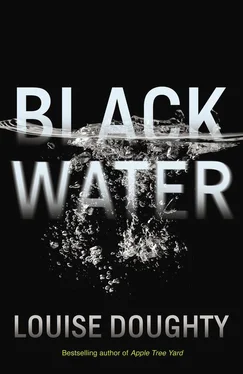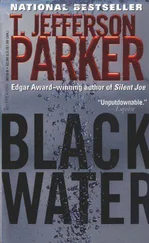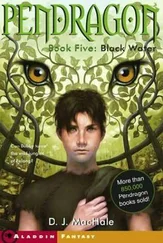The only place to find out more was the bar.
The journalists were all drinking and eating bowls of nuts for breakfast. That was when he knew. Those who monitored Radio Republik Indonesia had heard the announcement of the Communist takeover when they rose. Most of the hacks were there, apart from those who were still asleep: there was a rumour that a New Zealand correspondent known for his lunatic risk-taking in pursuit of a story had set off for Merdeka Square, where soldiers were already setting up roadblocks around the presidential palace.
He ordered a drink himself and sat on a bar stool next to a group of Australians. ‘This is it boys, I tell you,’ one was saying, ‘the Commies are taking power and we might as well get drunk because it’s bullets in the back of the head before sunset.’
‘Let’s wait and see,’ drawled one of the others, while lifting his glass.
There was a note of hysteria amongst the hacks, Harper thought — a hysteria he did not share. After a while, he went upstairs and smoked ferociously while waiting for the phone to ring with his instructions. It didn’t.
Within three days, the same journalists from that morning were in the bar celebrating. The Communist takeover had been defeated. The military were back in power. Two days later, the Generals who had been killed by the Communists during the attempted coup, or putsch, or whatever it was, were being buried with all due pomp and ceremony at Kalibata Heroes Cemetery.
Still no word from Johnson.
That afternoon, he decided to see if he could get an international line: they had been closed for some days but it was worth trying intermittently. More than once, one of the hacks had wandered into the bar crowing about his success in getting through and started an exit stampede, only for everyone to return disconsolate because the connections were down again.
Harper tried the phone in the lobby rather than the one in his room, although it was probably also bugged. There would be a low-ceilinged basement somewhere beneath the hotel, rows of desks staffed by young men with neatly combed hair and headphones pressed to one ear and a pencil in the other hand. However often the regime changed, the same staff would be there, still taking notes. The junior apparatus of government always stayed the same, at least for a while: the notes might be delivered to a different boss, that was all. Small cogs still turned even though the big wheel above them was slowing, halting, then — without ever being entirely motionless it seemed — beginning to grind in a different direction.
‘Sit tight,’ said the operative who manned the Institute’s phone — this was long before the days of the twenty-four-hour hotline and computerised information: the operative back home would be sitting at a desk with a list of handwritten instructions to pass on if Harper called in. ‘When the situation has stabilised, we will want your analysis of how the economy will recover.’
‘I would welcome the chance to gather more information on that as soon as I can,’ Harper replied.
A few days later, Harper went for a walk around the side streets, just for a few minutes, to taste the air. It was a relief to be out, even briefly, away from the claustrophobic world of the hotel. As he rounded a corner on the way back, he saw a group of young men ripping down a set of handwritten posters from a wall. As they did, he glimpsed a Communist slogan. The young men were tearing the posters into shreds and jumping on them.
What surprised him was not that the young men were ripping down the posters but that the posters had been put up at all — a pointless act of provocation on the part of the PKI, he thought, if anti-Communist feeling was now at boiling point. It didn’t make sense.
Daily, the radio broadcast detailed reports of the terrible things the Communist traitors had done before the brave, loyal army had succeeded in restoring order and saving the nation. After the heroic Generals had been abducted on that night, the wicked Gerwani women had cut off their testicles and danced naked in front of them, to torment them. Women Communists were even worse than the men, it would appear.
Death to the Communist traitors , the newscasters urged.
*
The following week, Johnson finally made contact. They met in a street behind the hotel, walking towards each other for a long time along an uneven sidewalk with the road on one side and a high, fissured wall made of concrete on the other. The wall was defaced with graffiti and torn posters, litter gathered around the base of the palm trees that lined the road and there was an unnatural silence in the cloudy air. Johnson nodded to him as he approached, casually, as if they had seen each other only the day before. As they drew near, they both stopped, facing each other. They folded their arms.
‘Pak Parno,’ Johnson said, looking from side to side as they talked.
‘Who’s he?’
‘You don’t need to know. He’s well connected, that’s all you need to know. Here’s the address.’ He handed Harper a small, folded piece of paper.
Harper opened it: Pejompongan, a street called Jalan Danau Maninjau, not far from the Naval Hospital. Harper knew the area a little, a mosque, a Catholic church, middle-class bungalows: a lot of civil servants lived round there. A naval attaché of some sort, perhaps? The navy had been heavily infiltrated by the Communists, though, and this man was presumably on the side of the military so maybe an army or air force connection more likely?
‘Go and see him this afternoon, visiting hour, get a feel for him and let him get a feel for you. If it goes okay, you’ll deliver a list of names to a general who will be at his house some time next week.’
‘What’s the point of this visit?’
‘Nothing, it’s a social call, oil the wheels, you know how people here are. Buddy up to him a bit. Act like you’re honoured to meet him.’
The street was empty. It seemed to be making Johnson nervous. On the other side of the road, there was a parked car with his minders in it, but he glanced around as he talked. Then he looked at his watch, said, ‘Be there five pm,’ and turned away.
Later that day, Harper got a betjak from outside the hotel. He leaned forward with his forearms resting on the bar in front of him as the driver began to pedal.
‘Pejompongan long place, sir,’ the driver said over his shoulder. He was an older man, wrinkled face, thinning hair, still out plying his trade, despite what was going on — if you didn’t ply your trade, you didn’t eat. Most of the betjak drivers were young men but this one had an air of being both aged and ageless.
‘Just head that way, I’ll tell you where to stop,’ Harper said. He never told the betjak driver the exact address.
It was the densest, hottest part of the day; the air close, the sky hazy. The betjak driver had large bony knees that seemed disproportionate to his skinny legs: as he pedalled, they rose up and down alternately, like shiny balls in an arcade. Harper felt exhausted just sitting there. That man must be three times my age and half my weight, he thought, but look at him. Darkness wouldn’t fall for hours, yet it already felt as if the buildings and the ground were exhaling the heat they had been absorbing all day. Even the swift pedalling of the driver couldn’t rustle up a breeze.
With the streets still quiet, the journey was a lot quicker than he had anticipated. He got the driver to drop him by the river and decided to take a look around, get a feel for the area. The water was high, the colour of milky coffee; a few pieces of refuse floated in it. The monsoon season was upon them and the rain was getting heavier every day now. This river would flood soon, as most of the rivers in Jakarta did, the colonial drainage systems having long fallen into disrepair.
Читать дальше












